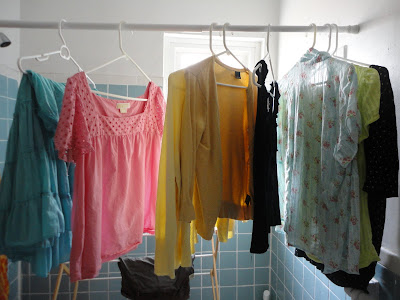
"We cannot win this war. I see a land with no place for us in it. I have looked for an end to the white men coming, but see none. They will make this land their own, and there will be no room for us," White Eagle tells Mary. I often reflect how people fleeing persecution persecuted an entire population that was living here. When I hear the song, "This land is your land, this land is my land" I think of it differently. I don't think this land was "made" for you and me.
"Both groups believed in dreams and portents," Mary says. "The scalplock moon shone down on all alike, and they would have looked back with equal disquiet. A time of trial approached, and both would look to great spirit for guidance and blessing. Be it God or Manitou, what did the naming of him matter?"
Agnes had an aunt, "Aunt M." who was the passer on of knowledge. Isn't it so that often there is the wise older or elderly person who passes the torch of wisdom on to the next generation? Singer Tori Amos recalled memories of her grandfather, who was Eastern Cherokee. "He would tell me stories about his ancestors escaping the Trail of Tears and their walk and their spiritual beliefs. And they felt that they were caretakers for our true mother and it was instilled in me but I guess I didn't think about it in this way until I became a mother myself and I always hear him saying in my ear 'I've put a chip underneath your skin and you will remember.'" In Ben Gadd's Raven End told from the perspective of a raven, the young raven Colin becomes the apprentice of wise old Greta to be the keeper and passer on of the old ways.
In Sorceress, it is Agnes's Aunt M. who "was not averse to adopting and adapting the practices of the older people. The ways to wisdom are many. She did not see one religion, one nation, or one people as having the monopoly on the truth. Her own path had led her to different teachers from different traditions." Looking at those who embrace a hate-filled, one path-only world, I remember these words. I want more than one teacher in life, and to be exposed to different cultures, don't you?
A door in Tangier, Morocco.

Agnes observes the custom of the native people leaving gifts by the stream (white pebbles, quartz crystals, a bead or two), "Offerings to the Mother, for water springs from her and flows free and pure to give us life. People had thought that from the beginning of time."
I think of what we leave now. Remnants of our disposable society: plastic water bottles, bags, and cups and more I've picked up during the Hackensack Riverkeeper cleanups I volunteered at. Waste which could have been avoided if people made different choices. I reflect on how we are so reckless with the water that bears the names of Indian peoples and languages, like the Hackensack River.

To the great hunter Jaybird, "all life was sacred. He would stand in solemn prayer before the creature whose life he had taken, saying "We are sorry to kill you, little brother, but our need is great. We do honor to your courage and speed to your strength."

I don't challenge people's right or desire to consume meat and animal products. I don't eat meat but do have some animal by products in my diet. My issue is with the great exploitation that comes with a population that wants to consume them in such excess and at the cheapest prices available and an entitlement attitude that we can treat animals in any manner we please and show no respect for their lives. Things are "cheap" for a reason: because of factory like conditions where animals are treated like machines.
Why can't animals live a natural life? Why can't we consume a little less? There's is a life too. I stand with Jaybird: All life is sacred.
There are prayers said before meals thanking God for the blessings about to be received, but what about the acknowledgment for those here in Earth who made the meal possible? For each meal...
For the farmers who so nurtured and toiled
For the animals who sacrificed life
For the land whose soil bore its bounty
For the water, giver of life
For the spirit above
I give thanks and gratitude.
In this New York Times article, A Northwest Journey by Canoe to Reconnect With the Old Ways, it spoke of "a deliberate effort to recapture cultural, linguistic and intertribal connections they said they had nearly lost as Indian ways of life were overwhelmed, first by European settlers and more recently by substance abuse and suicide."
I think many of us long to recapture and maintain a way of life that has been threatened. I want to connect with what matters most, and I want to be a caretaker, not a taker, of the land, its animals and its people.



































